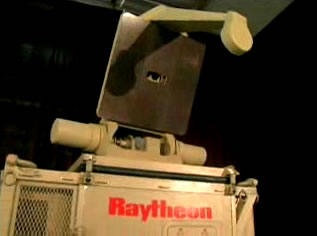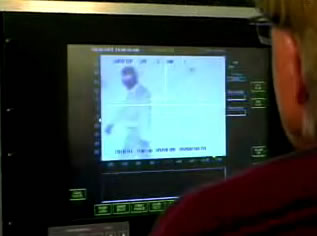Thomas Nephew has done such a fine job demolishing the insipid op-ed by Jackson Diehl in the Washington Post on H.R. 106 (the Armenian Genocide Resolution) that it seems almost sufficient to merely point to his blog entries (here and here).
Every year around this time, as the April 24 anniversary approaches and Congress bestirs itself on the issue, the Post sends someone out to swat at Armenian Americans. This year Diehl was the designated hitter. In the process of simultaneously arguing that the nonbinding resolution is pointless, since it’s nonbinding, and extremely harmful, because it hurts Turkey’s feelings and Turkey is an important ally (that’s what they say, anyway), Diehl mentions that “American Jewish organizations” have locked arms with the Turkish government in applying pressure to get it defeated. Yes, American Jews are trying hard to quash a bill that recognizes a genocide that predated the Holocaust and may have helped pave the way for it.
“Turkey’s Chutzpah”—that’s what the The Jewish Press called it. Although there seems to be plenty of chutzpah to go around, the editorial board at The Jewish Press seems to hold their fellow citizens blameless. Be that as it may, the editorial is worth quoting at length:
We are certainly not insensitive to the significance of Turkey’s support of Israel. But the Turkish government’s attempt to capitalize on that support by pressing the American Jewish community to oppose a Congressional resolution that condemns as “genocide” Turkey’s murder of a million and a half Armenians during World War I strikes us as being the height of chutzpah.
As The New York Sun reported, on February 5 the Turkish foreign minister met with representatives of several major Jewish groups and “made a hard sell” against House Resolution 106, which now has 176 co-sponsors. The Turkish official reportedly appealed to the participants by noting—outrageously, we think—the uniqueness of the German genocide against the Jews.
The Turks do not deny that between 1915 and 1917 they conducted a devastating military campaign against the Armenians and that thousands of Armenians were killed on forced marches. They claim, however, that the hapless Armenians were a fifth column, often armed and working on behalf of the Russian army in World War I.
But the American ambassador to the Ottoman Empire at the time, Henry Morgenthau, wrote in his memoir, “I am confident that the whole history of the human race contains no such horrible episode as this.” The orders for the deportations of the Armenian families in 1915 “were merely giving a death warrant to a whole race,” he wrote.
Anyone who seriously and objectively considers those events cannot but conclude that there was a calculated and purposeful effort to exterminate the Armenians. After all, approximately 1.5 million perished.
That said, we understand that opposition to House Resolution 106 does not necessarily signify lack of sympathy with the victims, or, indeed, sentiment against the concept itself. Not buying into an initiative on someone else’s schedule is not always an indicator of nefarious motives at play.
We also have no doubt that some would argue the Jewish community should oppose the resolution if only to preserve the aura of uniqueness surrounding the destruction of European Jewry in the Holocaust. And this, perhaps, was the point the Turkish foreign minister was trying to make in his presentation to Jewish leaders.
But acknowledging as genocide the systematic murder of a million and a half human beings of a particular ethnic heritage in no way detracts from recognition of the Holocaust as a uniquely monumental evil in the blood-soaked annals of human history.
Okay, it was so impressive, I quoted the piece in its entirety.
For those unfamiliar with The Jewish Press, this New York newspaper champions, in its own words, “Torah values and ideals from a centrist or Modern Orthodox perspective.” It is also a “tireless advocate on behalf of the State of Israel.” Not exactly a raving left-wing rag.
Also, the first sentence in the editorial alludes to something that may not be widely understood or appreciated. Among other things, Israel and Turkey are deeply engaged together on energy projects and, perhaps more significantly, on water pipelines. (See also “Triple Alliance: The US, Turkey, Israel, and the War on Lebanon” for more on the strategic partnership of Israel and Turkey.)
In short, this is the context of Jackson Diehl’s op-ed. Big power machinations. Control over natural resources. If you want to play this game, you can just leave your snivelling little moral issues at home. History isn’t about people. 1,500,000 is just a number. Memories don’t weigh anything. “Get real,” Diehl and the Washington Post say. “Get real.” Realpolitik.








